Navigating The Calendar: A Comprehensive Guide To Federal Holidays In Canada For 2025
Navigating the Calendar: A Comprehensive Guide to Federal Holidays in Canada for 2025
Related Articles: Navigating the Calendar: A Comprehensive Guide to Federal Holidays in Canada for 2025
Introduction
With great pleasure, we will explore the intriguing topic related to Navigating the Calendar: A Comprehensive Guide to Federal Holidays in Canada for 2025. Let’s weave interesting information and offer fresh perspectives to the readers.
Table of Content
Navigating the Calendar: A Comprehensive Guide to Federal Holidays in Canada for 2025
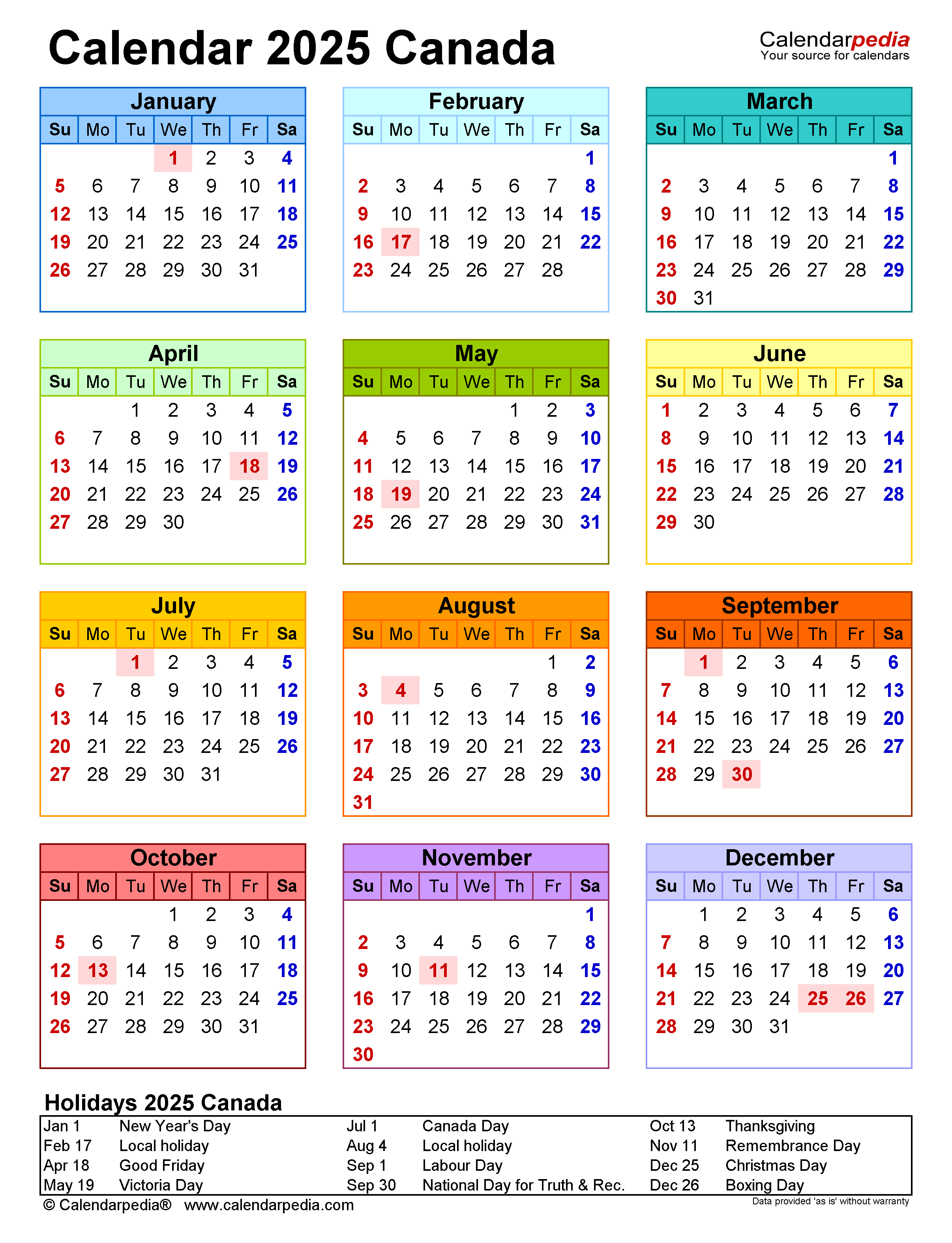
The Canadian calendar is punctuated by a series of federal holidays, offering opportunities for reflection, celebration, and relaxation. Understanding these holidays is crucial for individuals and businesses alike, enabling them to plan effectively and engage in meaningful commemorations. This comprehensive guide provides a detailed overview of federal holidays in Canada for 2025, exploring their significance, dates, and potential impact.
A Detailed Look at the 2025 Federal Holidays
2025 presents a diverse range of federal holidays, each with its own unique history and cultural significance.
1. New Year’s Day (January 1)
Marking the beginning of a new year, New Year’s Day is a time for fresh starts, resolutions, and optimism. It is a universally recognized holiday, celebrated across cultures and continents.
2. Family Day (February 17)
Celebrated in select provinces, Family Day emphasizes the importance of familial bonds and shared experiences. It provides an opportunity for families to spend quality time together, creating lasting memories.
3. Good Friday (April 18)
Observed by Christians, Good Friday commemorates the crucifixion and death of Jesus Christ. It is a day of solemn reflection and prayer, reflecting on the sacrifice and redemption symbolized by this event.
4. Easter Monday (April 21)
Following Good Friday, Easter Monday marks the end of the Easter weekend and celebrates the resurrection of Jesus Christ. It is a time of joy and renewal, symbolizing hope and the triumph of life over death.
5. Victoria Day (May 19)
Honoring Queen Victoria, this holiday celebrates the historical significance of the British monarch and her role in shaping Canada’s identity. It is a time to reflect on the legacy of the British Empire and its impact on Canadian history.
6. Canada Day (July 1)
Canada Day is the national holiday celebrating the Confederation of Canada in 1867. It is a day of national pride and unity, marked by parades, fireworks, and celebrations across the country.
7. Labour Day (September 1)
Observed on the first Monday of September, Labour Day acknowledges the contributions of workers and the labor movement. It is a time to recognize the rights and achievements of workers, advocating for fair wages and safe working conditions.
8. Thanksgiving Day (October 13)
Held on the second Monday of October, Thanksgiving Day is a time for gratitude and reflection. It is an opportunity to express appreciation for the blessings in our lives, fostering a sense of community and shared values.
9. Remembrance Day (November 11)
Commemorating the end of World War I, Remembrance Day honors the sacrifices made by those who served in all wars and military conflicts. It is a day of solemn remembrance, marked by ceremonies and moments of silence to pay tribute to the fallen.
10. Christmas Day (December 25)
Celebrated by Christians worldwide, Christmas Day marks the birth of Jesus Christ. It is a time of joy, family gatherings, and the exchange of gifts, fostering a spirit of goodwill and generosity.
11. Boxing Day (December 26)
Observed the day after Christmas, Boxing Day traditionally marked a day for giving gifts to servants and the poor. Today, it is a holiday for shopping, spending time with loved ones, and enjoying the festive season.
Understanding the Importance of Federal Holidays
Federal holidays in Canada serve multiple purposes, reflecting the nation’s historical, cultural, and social values. They provide:
- A Collective Identity: Federal holidays unite Canadians through shared celebrations, fostering a sense of national pride and belonging.
- Historical Commemoration: They serve as reminders of significant events and individuals who have shaped Canada’s history, ensuring their legacy is remembered.
- Cultural Expression: They offer opportunities to celebrate cultural traditions, religious observances, and diverse heritage, enriching the fabric of Canadian society.
- Economic Impact: Federal holidays impact businesses and industries, creating opportunities for leisure, tourism, and retail spending.
- Time for Reflection: They provide moments for individuals to pause, reflect on their values, and connect with their families and communities.
FAQs Regarding Federal Holidays in Canada
1. Are all federal holidays observed nationwide?
No, some federal holidays, like Family Day, are only observed in specific provinces or territories.
2. Are federal holidays mandatory for businesses?
While federal holidays are generally observed by businesses, there are exceptions. Some businesses, like those providing essential services, may operate on holidays.
3. Can businesses choose to observe a federal holiday?
Businesses have the discretion to choose whether to observe a federal holiday, but it is generally recommended to follow the national guidelines.
4. What happens if a federal holiday falls on a weekend?
In most cases, a federal holiday falling on a weekend is not observed as a separate day off. However, there may be exceptions depending on the specific holiday and provincial regulations.
5. Can a federal holiday be moved to another day?
Federal holidays are generally fixed dates, but exceptions can occur under specific circumstances. For example, if a holiday falls on a weekend, it may be moved to the following Monday.
Tips for Planning Around Federal Holidays
- Plan Ahead: Consider the impact of federal holidays on your personal and professional schedules, ensuring you have sufficient time to prepare and adjust.
- Check Business Hours: Be aware of potential business closures and altered operating hours during holidays.
- Travel Planning: Book flights, accommodations, and other travel arrangements well in advance, especially during popular holiday periods.
- Holiday Shopping: Shop early to avoid crowds and potential stock shortages during peak holiday seasons.
- Prepare for Potential Delays: Anticipate potential delays in services and deliveries due to holiday closures and increased demand.
Conclusion
Federal holidays in Canada play a vital role in shaping the nation’s cultural landscape, providing opportunities for reflection, celebration, and unity. By understanding the significance of each holiday and planning accordingly, individuals and businesses can navigate the calendar effectively, maximizing the benefits of these important observances.

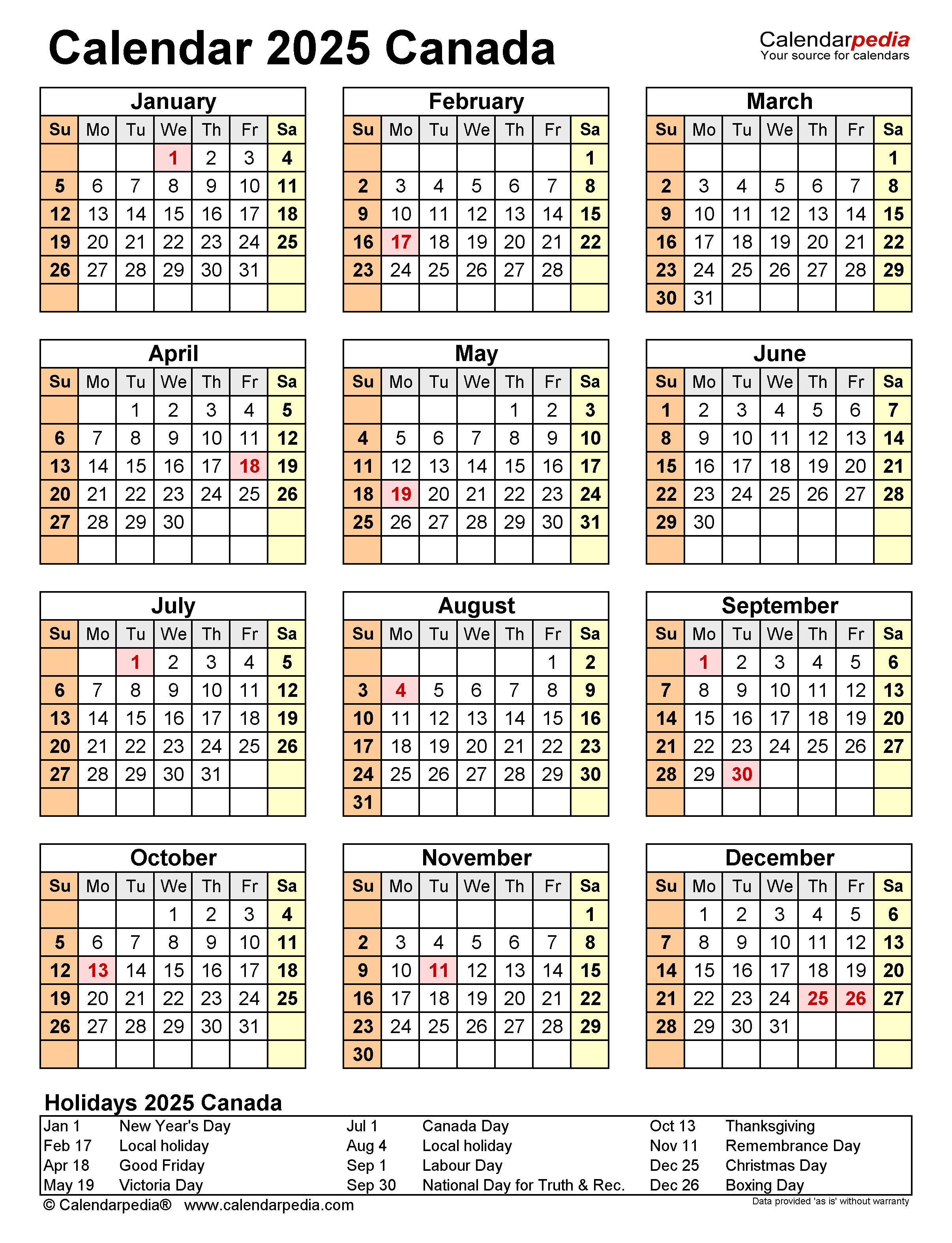



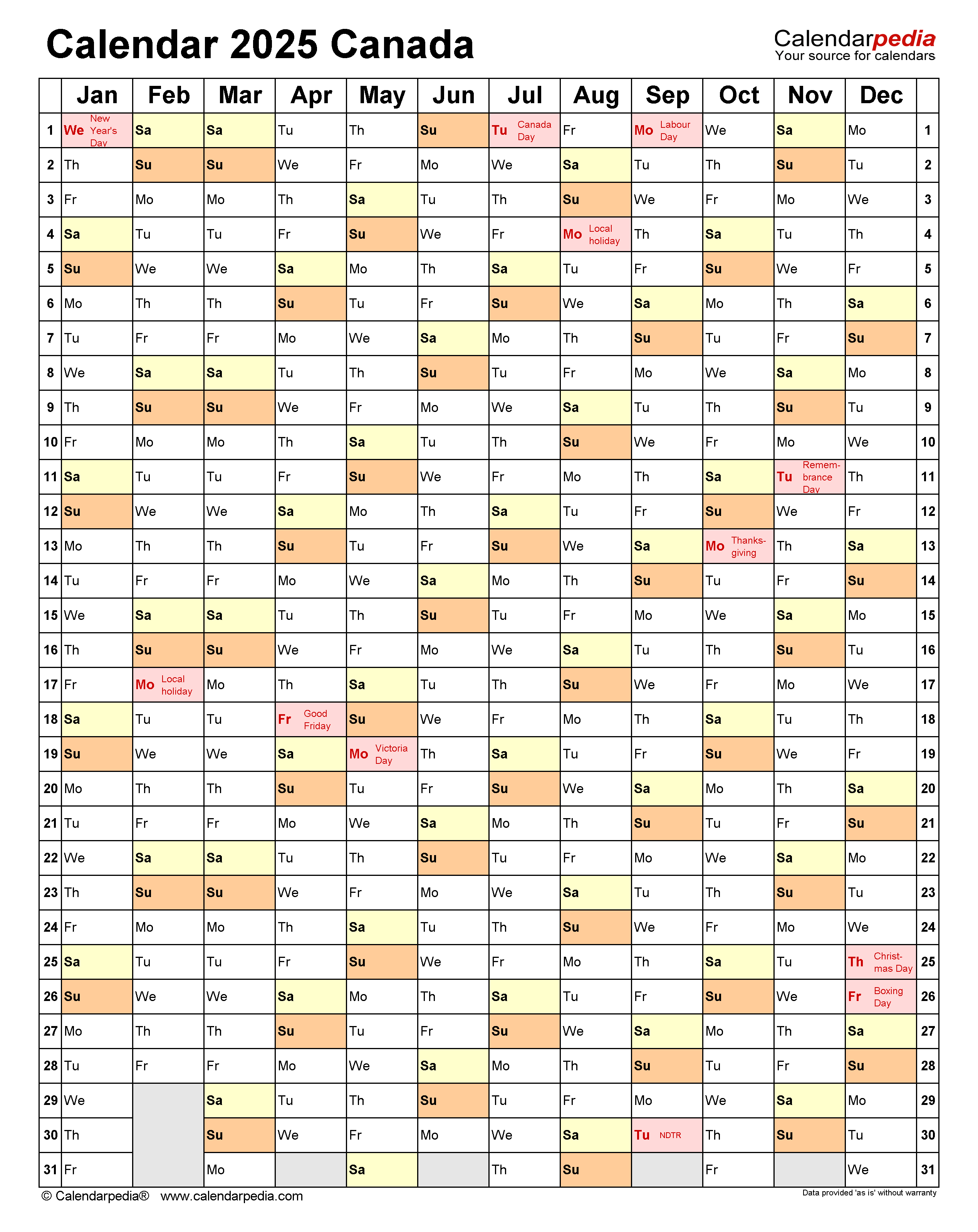
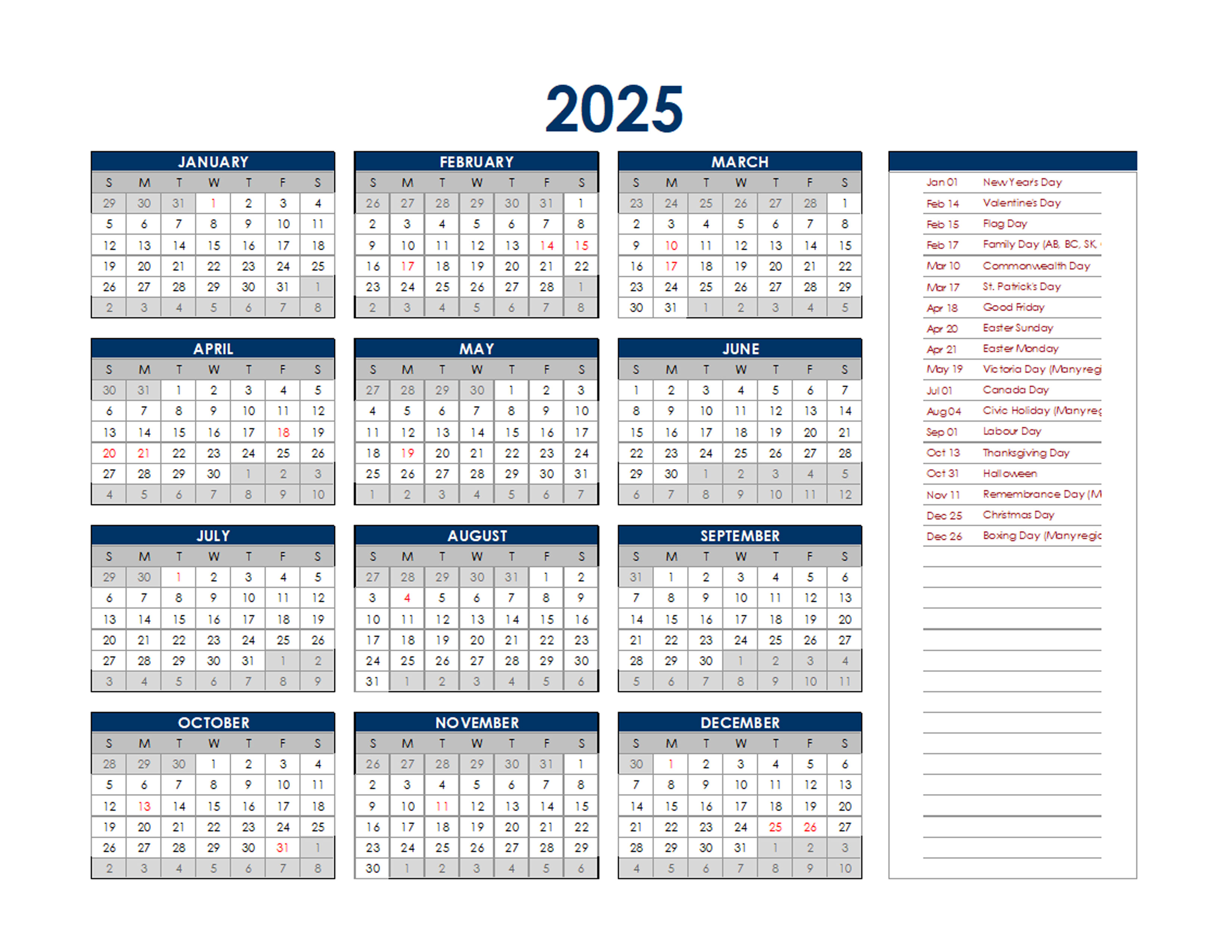
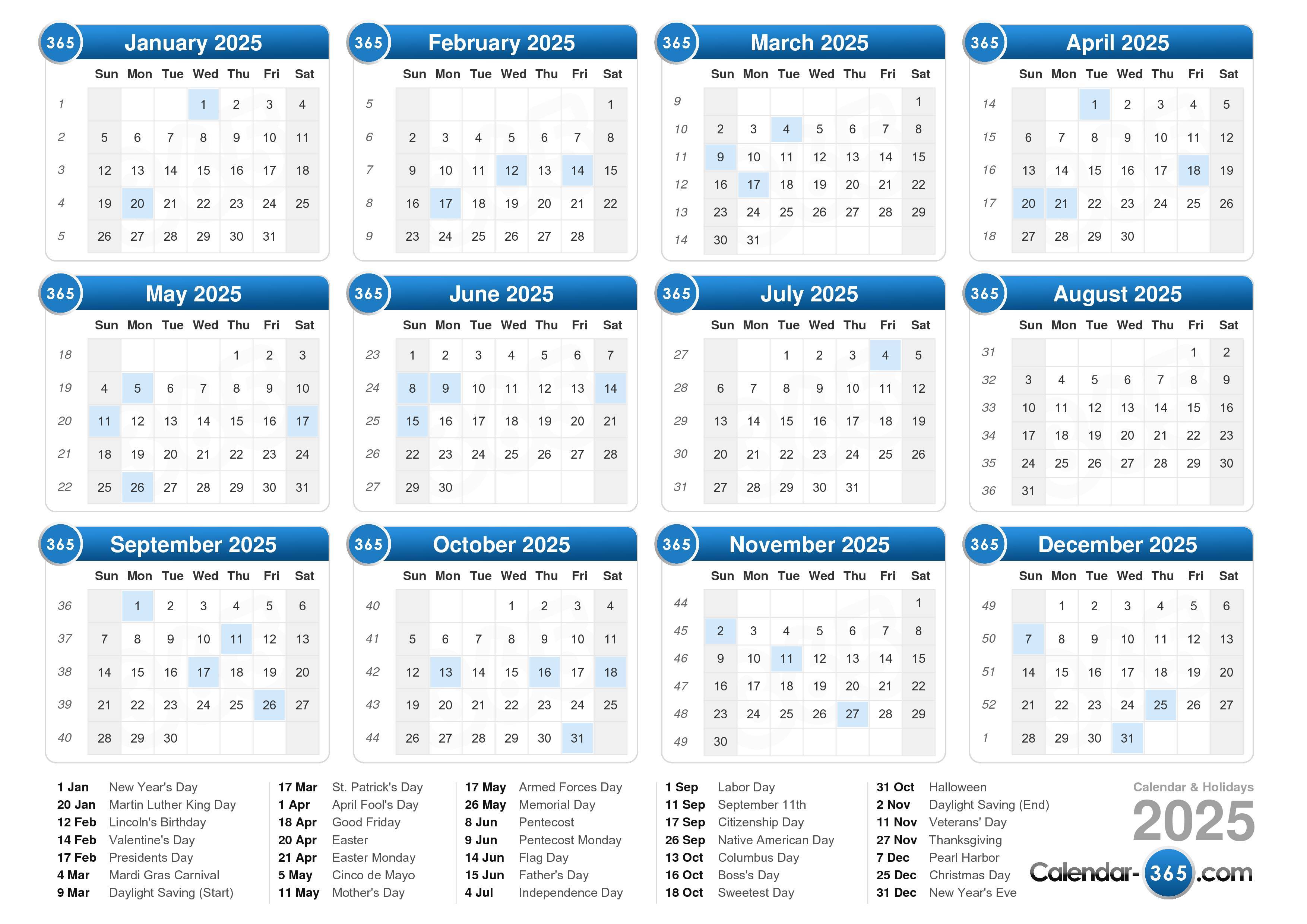
Closure
Thus, we hope this article has provided valuable insights into Navigating the Calendar: A Comprehensive Guide to Federal Holidays in Canada for 2025. We thank you for taking the time to read this article. See you in our next article!